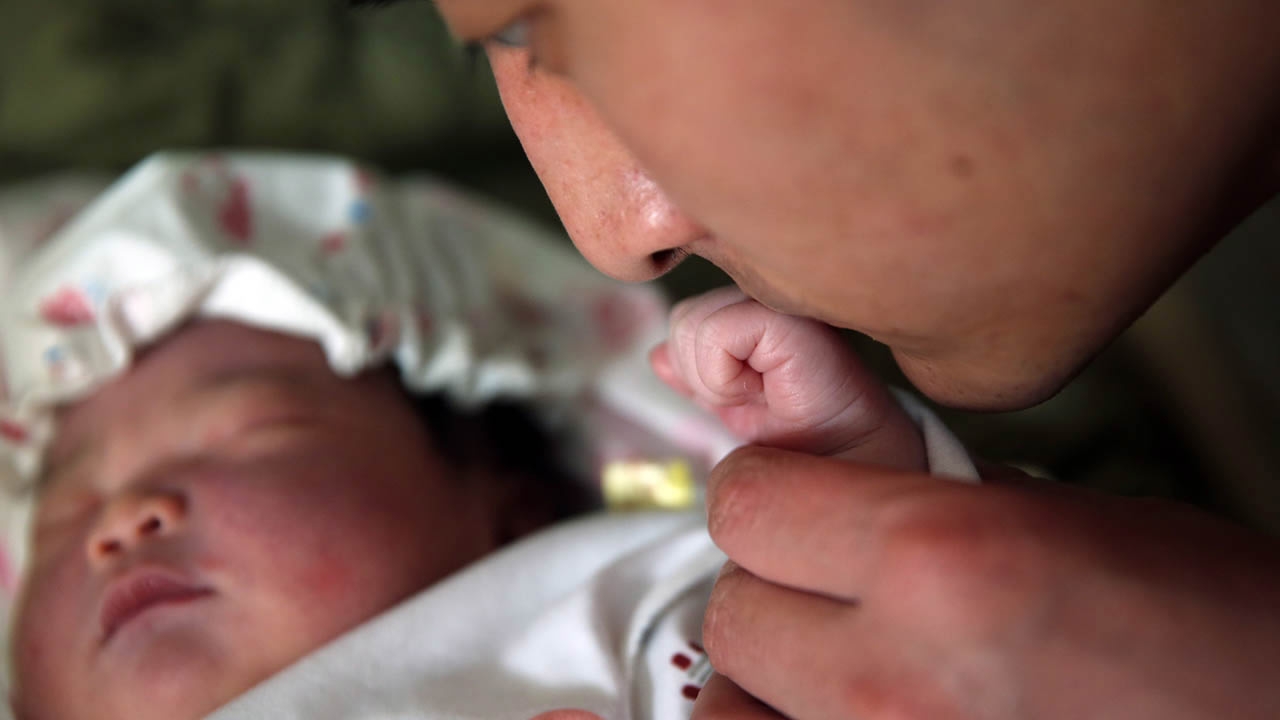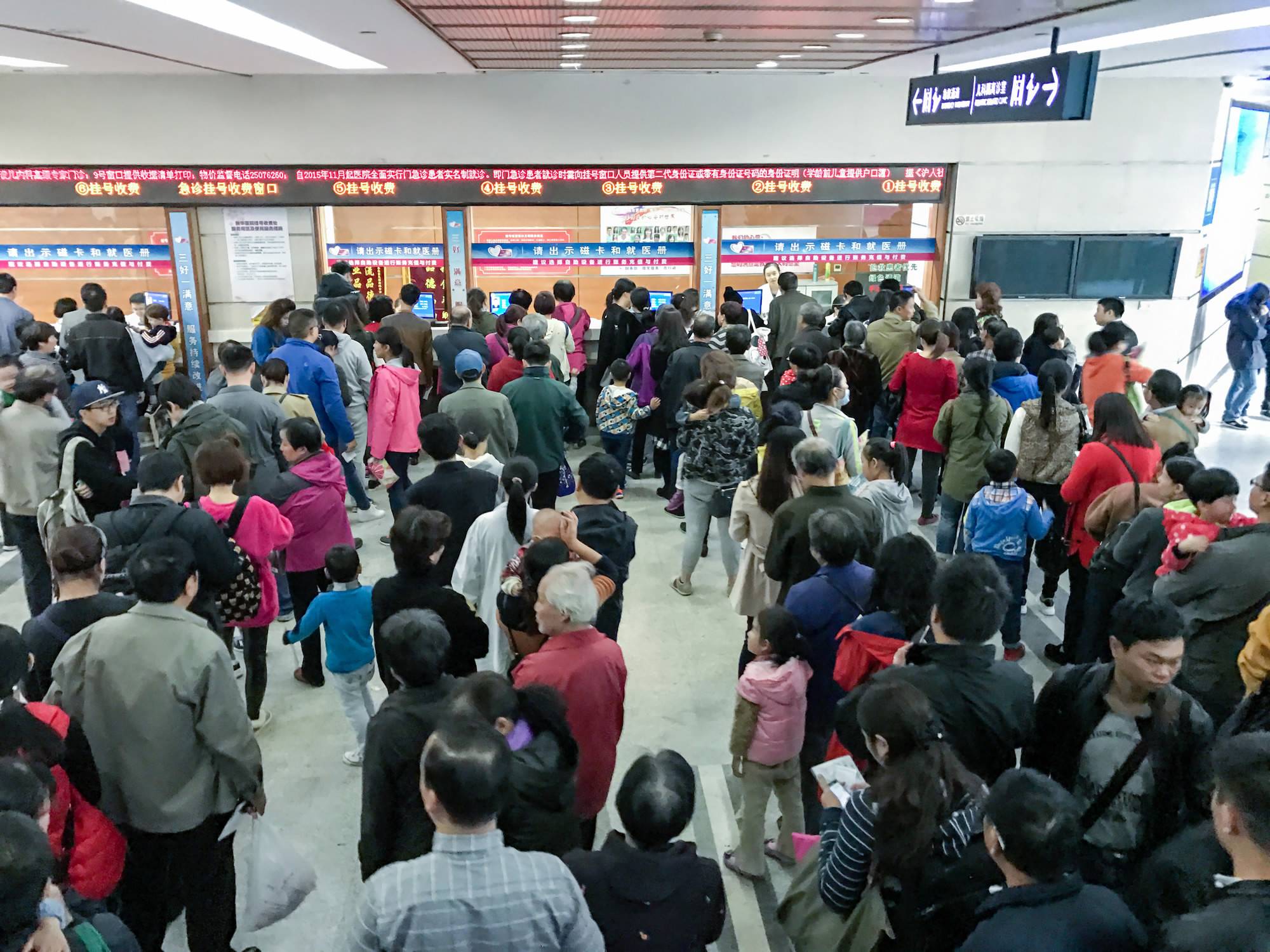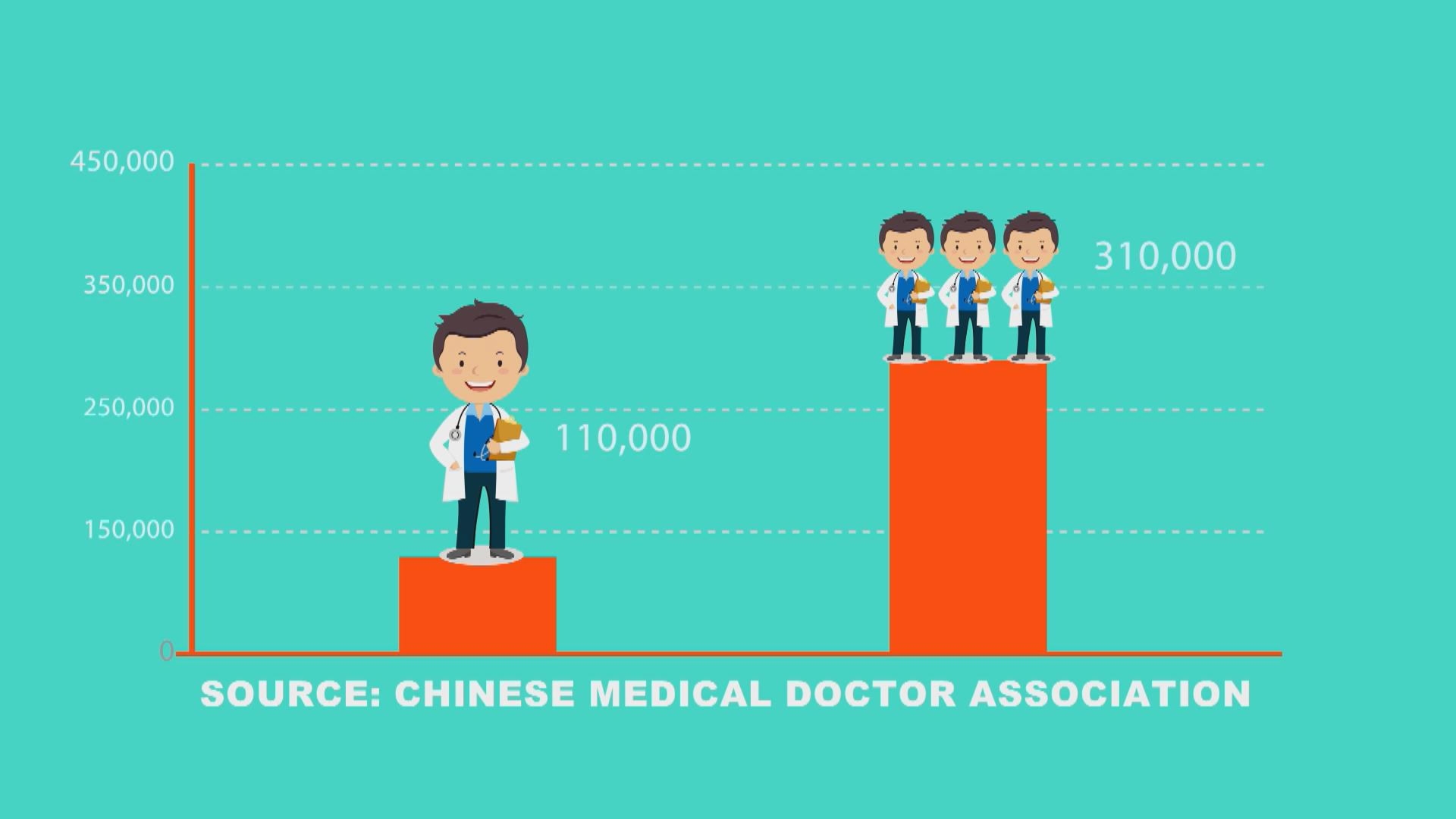
China
14:09, 28-Feb-2017
Two-child policy creates need for more pediatricians in China
Updated
10:55, 28-Jun-2018

By CGTN's Ge Yunfei
It’s nine in the morning, and Dr. Huang Libin begins his rounds at his hospital's pediatrics department. It's a taxing job, but he can get off work only after midday the next day.
Huang is a pediatrician at the First Affiliated Hospital of Sun Yat-sen University, one of the largest hospitals in southern China. But there are less than 30 doctors serving the flood of parents and their children.
“It’s very difficult to schedule work shifts, especially when the female doctors are on maternity leave to have their second babies,” Huang told CGTN:“ A whole day's workday is from 8:00 am to midday the next day. Male doctors have to work six to eight shifts like that every month. ”

Crowded scene in a pediatrics hospital in Shanghai/ CFP Photo
Crowded scene in a pediatrics hospital in Shanghai/ CFP Photo
A year ago, China formally introduced the two-child policy nationwide, ending decades of the one-child rule.Today, that policy's effects are gradually being felt.
In 2016, around 18 million babies were born in China, the highest number since the 2000. And over 45 percent of those babies were the second children in their families.
Now, almost every pediatrics department in all the hospitals in China are overburdened with worried parents and their children, so imagine what will happen in a few years when those babies become kids.
According to the Chinese Medical Doctor Association, China now has only 110,000 pediatricians. But the country needs to triple that number to meet the current demand.

China needs to triple its current 110 thousand pediatricians to meet the real demand. / CGTN Photo
China needs to triple its current 110 thousand pediatricians to meet the real demand. / CGTN Photo
That gap has made pediatrics an unattractive profession instead of a desired job..
“Can we not talk about money?” When talking about his salary, Huang is a little embarrassed.
Huang said the income of pediatricians is low in most hospitals, some even at the lowest level. The main reason is that pediatrics are not a profitable department.
Zhou Haibo is a deputy at the National People’s Congress who has been calling on government to address the problem for years. As the president of Qingyuan Municipal Hospital, he gave a reason why hospitals are unwilling to develop pediatrics.
“Now hospitals are all market-based and medicine sales are their main source of income. Medicines for children are cheaper than those for adults. This is a money-losing department. Some hospitals would even abandon pediatrics completely,” Zhou said.
Zhou has submitted a proposal to increase the income of pediatricians and more government financial support. And his voice has been echoed.
At last year’s National People’s Congress, Chinese Premier Li Keqiang vowed to push for medical service pricing reform and move faster to train pediatricians.
In 2016, eight medical universities started recruiting pediatricians again after 17 years.
But this will not offset the current sharp contradiction immediately. “Training a pediatrician is a long process, so in the short term there is no quick solution,” Zhou added, “but now we’ve seen some hope. You have to make doctors and hospitals willing to develop pediatricians. So reforming the medical service pricing system is key.”
Zhou said the era of the second-child policy requires more measures to deal with the increase in the number of newborn babies. And addressing the shortage of pediatricians is just one of them.
1892km

SITEMAP
Copyright © 2018 CGTN. Beijing ICP prepared NO.16065310-3
Copyright © 2018 CGTN. Beijing ICP prepared NO.16065310-3